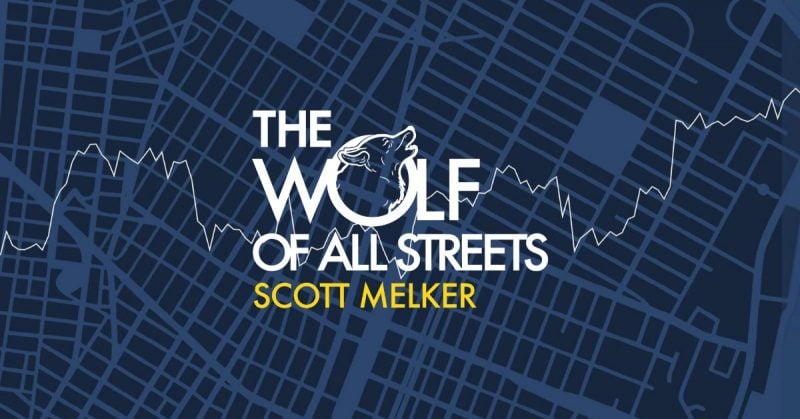In January, legendary billionaire hedge fund manager Stanley Druckenmiller struck an enthusiastic tone, suggesting that stock market returns would surge due to “animal spirits” tied to President Donald Trump’s policies.
“I’ve been doing this for 49 years, and we’re probably going from the most anti-business administration to the opposite,” said Druckenmiller in a CNBC interview. “I’d say CEOs are somewhere between relieved and giddy. So we’re a believer in animal spirits.”
It didn’t look like Druckenmiller would be right when stocks nosedived from February through early April because of harsher-than-expected tariffs. But Druckenmiller is far from a newbie. His been-there-done-that experience means he’s seen plenty of political and economic turmoil, and it turns out his bullishness wasn’t misplaced.
The S&P 500 has rallied 35% since its April low, and red-hot technology stocks have been a major reason for the gains. Despite concerns that IT spending on AI infrastructure would stall this year, the opposite has happened. Seemingly, everyone is exploring AI, and spending has surged, taking related tech stocks higher.
Still, worries persist. The market’s rally has lifted valuations to levels that have drawn bubble comparisons to the dawn of the Internet. The bears argue that lofty valuations and a “buy anything AI” investor mentality mean a reckoning looms.
Maybe so, but perhaps not yet. While Stanley Druckenmiller doesn’t disclose his investing decisions in real time, his Duquesne family office is required to disclose holdings every quarter in a 13F filing with the Securities and Exchange Commission, or SEC. The most recent filing just hit the tape, and it suggests Druckenmiller doesn’t think the AI bubble is popping yet.
Druckenmiller is one of the most successful hedge fund managers of our time. His hedge fund, Duquesne Capital Management, managed $12 billion when he closed it to manage his own money. He’s perhaps best known for “breaking the Bank of England” with famed investor George Soros in 1992, successfully shorting the British pound sterling and reportedly pocketing over $1 billion in profits.
His family office, which boasts a portfolio valued at over $4 billion, took new stakes in tech giants Amazon (AMZN), Alphabet (GOOGL), and Meta Platforms (META).
Amazon: 437,070 shares valued at roughly $95 million.
Alphabet: 102,200 shares valued at about $25 million.
Meta Platforms: 76,100 shares valued at approximately $56 million.Source: Whale Wisdom.
All three are hyperscalers, a term used to describe the planet’s biggest cloud data providers, and each is among the biggest spenders on artificial intelligence infrastructure, including Nvidia GPUs, liquid-cooled servers, and the networking gear necessary to connect them.
Alphabet’s capital expenditures (capex) totaled $24 billion in the third quarter, and its CEO, Sundar Pichai, increased the company’s full-year spending outlook to $91 billion to $93 billion, up from approximately $53 billion in 2024.
Amazon’s capex totaled $53 billion in 2023 and $83 billion in 2024. Recently, CEO Andy Jassy stated that total spending will reach $125 billion this year.
It’s a similar story at Mark Zuckerberg’s Meta Platforms, which plans to spend at least $70 billion when all is said and done in 2025, up from $39 billion in 2024.
Those investments are providing plenty of opportunities for the three companies to grow their businesses. Amazon and Alphabet are using data center spending to capture seemingly insatiable AI app R&D demand from enterprises and governments hungry for compute power. Meta can use its spending on AI to drive faster growth across its social media platforms, including Facebook and Instagram, and improve upon its Reality Labs business, which makes smart glasses and VR headsets.
While Druckenmiller established new positions in the three hyperscalers, none of those positions—at least for now—are large enough for those stocks to rank in his top 10 holdings. Also, absent from his portfolio are some of AI’s biggest players, namely Nvidia and Palantir.
Related: Peter Thiel dumps top AI stock, stirring bubble fears
Druckenmiller famously bought Nvidia early on, but sold his stake entirely in the third quarter of 2024. He exited his Palantir position in the first quarter of 2025. He also appears less enthusiastic about AI infrastructure, given that he sold his Broadcom (AVGO) stake in the third quarter. He also doesn’t own AI server stocks like Dell or Super Micro.
It’s also interesting that he exited Microsoft, another hyperscaler that is spending heavily on AI, during the third quarter.
Altogether, his moves may suggest he’s more a fan of companies likely to benefit from the use of AI to help people shop and spend money, rather than infrastructure. Alphabet, Amazon, and Meta all have massive consumer-facing businesses that can leverage AI. And while Microsoft is everywhere thanks to Office 365, it’s geared more towards businesses and work than delivering ads or selling directly to consumers than these other players.
Related: Warren Buffett’s Berkshire snaps up major tech stock, trims favorite
This story was originally reported by TheStreet on Nov 16, 2025, where it first appeared in the Investing section. Add TheStreet as a Preferred Source by clicking here.























